Bad Vibes from Bad Aibling CNN Report

https://timedotcom.files.wordpress.com/2016/02/germany-train-crash-bad-aibling.jpg?quality=75&strip=color&w=1680
CNN article
The CNN article reproduced below with full accreditation, relates to the railway disaster that occurred in Germany on the ninth February, 2016. You will see it reports the local prosecutor as laying the blame for the crash on a 'Train Dispatcher', who instead of applying himself to the rules and correct procedures, was distracted by playing video games.
In fact it was only moments before the crash he was doing so:
"Moments before two trains collided head-on -- killing 11 people -- a dispatcher was playing video games on his phone, authorities said." It goes on to quote sources as follows: "The dispatcher has been accused of manslaughter and other crimes."
Who and what to blame
What we may glean from this is that very quickly - within a week - German Government agencies, had agreed who to blame and why.
It appears to be becoming an almost automatic reflex these days - to blame an individual rather than systems, management or even government. It comes hot on the heels of the Germanwings tragedy, blamed on the 'depressed and suicidal' pilot Andreas Lubitz. This time it is the strangely 'accused' yet unidentified, 'distracted' 'dispatcher'.
'Accused' is a rather strange word to use. Note it does not say 'charged'. How are we meant to interpret it? To suggest someone has been accused, in the absence of a criminal charge, wreaks heavily of message manipulation to me. Does it you?
Note the choice of headline by CNN, subsequently unsupported by any factual detail that might explain how the playing of a video game 'moments before' the collision, might have contributed to it, let alone how the authorities knew this was the case. If it was only 'moments before', how could the collision have been prevented by him? In other words by that point, wasn't the collision inevitable, making the playing of the video game at that point, quite irrelevant to the causation?
The significane (if any) of 'moments before'
To make the case that the playing of the game 'moments before' was significant to the causation, you would have to explain what he could have done at that point in time to stop it or how playing the game had somehow prevented him realising two trains were on the same section of single track and travelling in the opposite direction on certain collision course. We are asked to believe that all an experienced railwayman needed was a video game to prevent him appreciating the seriousness of the situation, if he was fully appraised of it. Surely not? It would take far more than momentary distraction to allow, and subsequently not intervene to prevent, a catastrophe.
So first perhaps someone will explain what means of communication existed between the 'dispatcher' and the train drivers, that might have enabled him to send a warning had he not been 'distracted' by his video game. Of course if there were no means of communicating, this also would make the video irrelevant, because even if he had belatedly realised and wanted to warn, he would have been unable to do so.
If he did in fact have a means of contacting the drivers by radio, the 'moments before' explanation is still farcical. The much more serious issue is how two trains could find themselves on the same section of single track, travelling in opposite directions, an error that should have been picked up much earlier. Any explanation that centres on human failures needs to address this, not 'distractions moments before' the actual collision.
Why were there not fail-safe systems or why didn't they work?
However, the issue of safety on single track is so ancient and well understood, that 'fail-safe' systems have long since been introduced to prevent collision. Are you telling me that the Germans, with all their technical experience and expertise, did not have such a system in place, or that it was so fragile that it could be undermined by the mere inattentiveness of an operative momentarily playing on a video game? The very idea is preposterous!
Either the safety systems in place on that section of the line were totally inadequate, that must surely point to serious failures in company or railway management, or someone is lying.
Timetables
On several counts the system failed. First the drivers must have been aware of the timetable, so designed to prevent collision. If the trains had complied with their timetables they would not have collided. So what went wrong with the timetable? Either or both trains must have left early or late to meet in the middle. Which was it and how did it happen?
Normal procedures ignored
If the drivers were experienced and used to the track, they would presumably expect to see the one train pass them on the double track before proceeding. Indeed regular passengers were surprised this did not happen let alone trained professions. Something must have persuaded them this was not required. Why did they not question or even perhaps proceed with caution, allowing them time to stop should they meet a train coming in the opposite direction?
Signalling
Then we have the issue of signalling which being computer controlled must surely be fail-safe to absolutely prevent opposing trains being on the same section of track at the same time and even applying emergency braking should it detect such a situation? No train driver would advance on the section against a red light unless totally negligent or incompetent and this hasn't been alleged, but an explanation is not proffered. All we have is a 'distracted' employee 'moments before'.
Questions
So what we need, rather than this superficial and totally unconvincing account, is detailed and plausible explanations for the crash.
- What happened to the standard procedures that prevented collision?
- What happened to the normal timetabling that must have been breached?
- How come the driver of the second train did not wait until the expected one coming in the opposite direction had passed him?
- Why did he not ask questions or proceed with caution given the up train had not passed?
- What electronic safety systems are in place and why did they not work to prevent two trains on the same section of line, or warn or stop them?
- If there are safety systems, how were they either ignored or over-ridden?
- Why are the trains not fitted with automatic braking systems to prevent collision or if they are why did they not work in this case?
- Has any evidence of suspicious or criminal activity, domestic or foreign, been uncovered in the investigation?
CNN reliability
Of course none of these questions are raised, or answers sought, in the CNN article below. Its only significant purpose is to place the blame on a totally implausible explanation, and I for one am unconvinced by it. At the very least it is a shoddy and unprofessional article.
However it is what we have come to expect from CNN which has been closely associated with the American security services and particularly the CIA. (See below) Its fortuitous presence at the Paris bombing and subsequent reporting of it was highly coincidental and flawed, so I treat anything coming from it, with great scepticism. Indeed an intimation of meddling by covert agencies, so common at present. If anything this CNN report tends to reinforce my suspicion that there is more to this crash than meets the eye and giving off very bad 'vibes'.
An earlier article on the crash can be found here: http://veaterecosan.blogspot.co.uk/2016/02/the-92-bad-aibling-train-crash-by.html
https://www.intellihub.com/cnns-anderson-cooper-confronted-about-his-cia-connections-his-response-may-surprise-you/
http://www.globalresearch.ca/world-class-journalist-spills-the-beans-admits-mainstream-media-is-completely-fake/5516749
http://www.globalresearch.ca/world-class-journalist-spills-the-beans-admits-mainstream-media-is-completely-fake/5516749










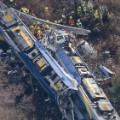
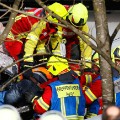
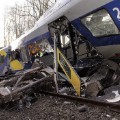
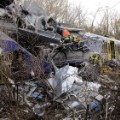
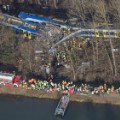
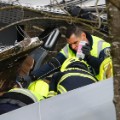
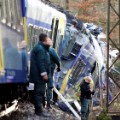
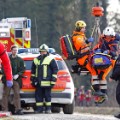
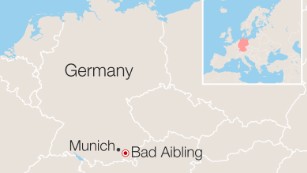
Transdev Appoints Serge Castello as Security Director
ReplyDeleteJan 4 16
Commander Serge Castello of the French National Police Force has been named Security Director of the Transdev Group. Mr. Castello will be responsible for defining and implementing group security & safety policy at headquarters and throughout the Transdev networks. His duties will include advising urban and interurban network managers on anticipation and prevention of public security risks. He served as Deputy Director for Neighborhood Security for the Seine-Saint-Denis area, and then Director from May 2011 to September 2015. http://www.bloomberg.com/research/stocks/private/snapshot.asp?privcapId=1222575